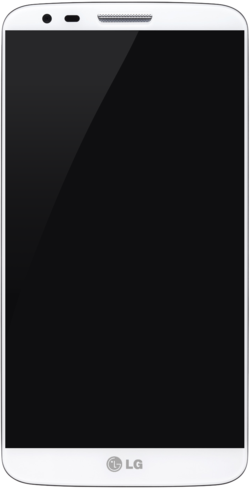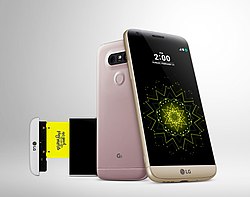The LG G series was a line of Android devices produced by LG Electronics. The "G" designation was first introduced in 2012 as a branch of the LG Optimus series for flagship devices, but LG announced in July 2013 that the "Optimus" name would be discontinued for future flagships in favor of maintaining "G" and "Vu" as distinct brands. [1] The first purely G-branded phone, the LG G2, was unveiled in August 2013. [2] [3]
Contents
- Phones
- 2012: LG Optimus G
- 2013 lineup
- 2014 lineup
- 2015 lineup
- 2016 lineup
- 2017 lineup
- 2018 lineup
- 2019 lineup
- 2020-2021 lineup
- Tablets
- Watches
- LG G Watch
- LG G Watch R
- See also
- Notes
- References
| Developer | LG Electronics |
|---|---|
| Type | Smartphones, smartwatches, and tablets |
LG's first two smartwatches, the LG G Watch and the LG G Watch R, were also part of the LG G series. Starting with the LG Watch Urbane, LG dropped the "G" branding from the device's name, thus eliminating the watches from the G series.
In April 2020, LG announced that it would discontinue the G branding and return to using distinct brand names for future flagship devices (beginning with the LG Velvet), to "resonate with today's consumers and help us to establish a clearer brand identity." [4]










